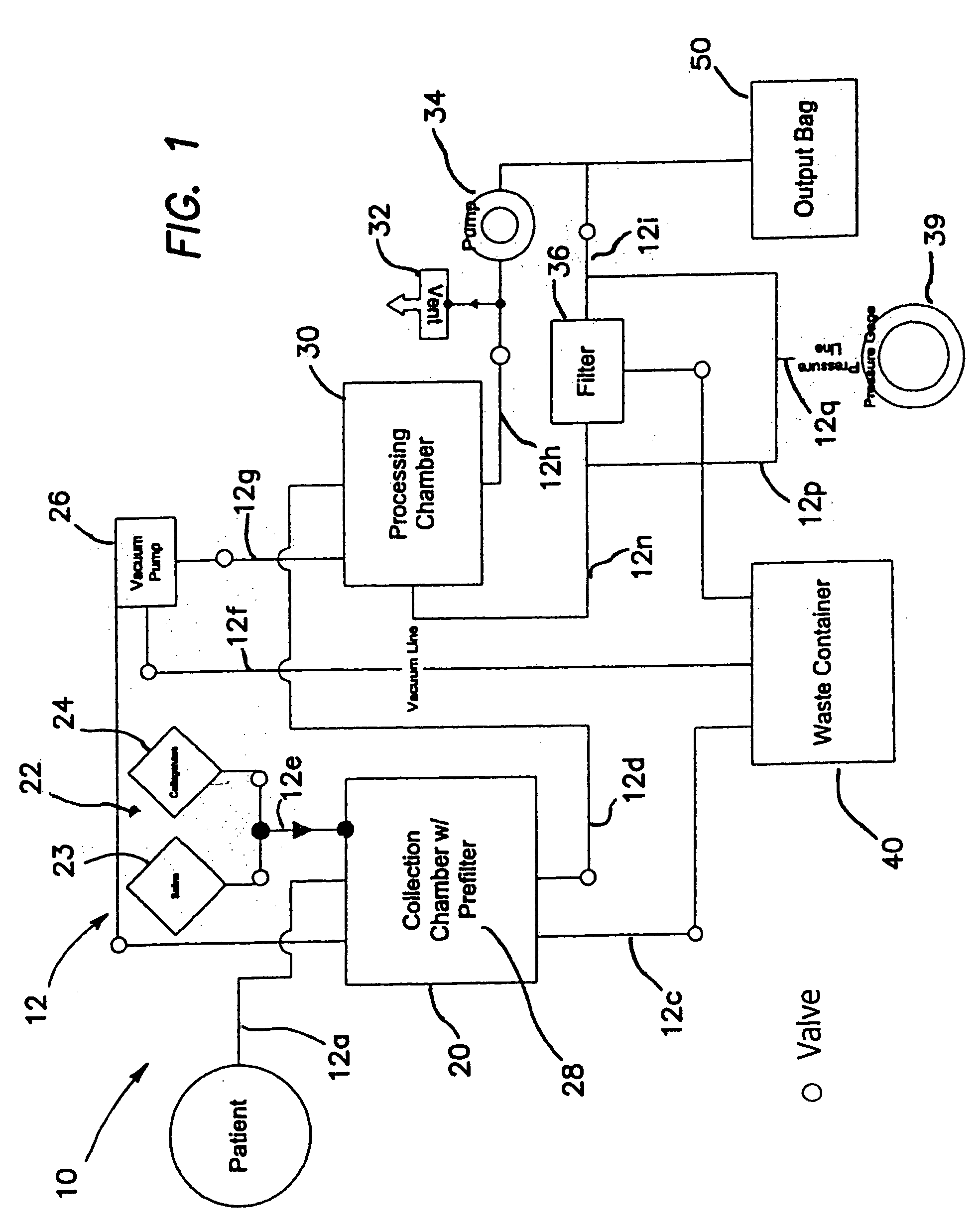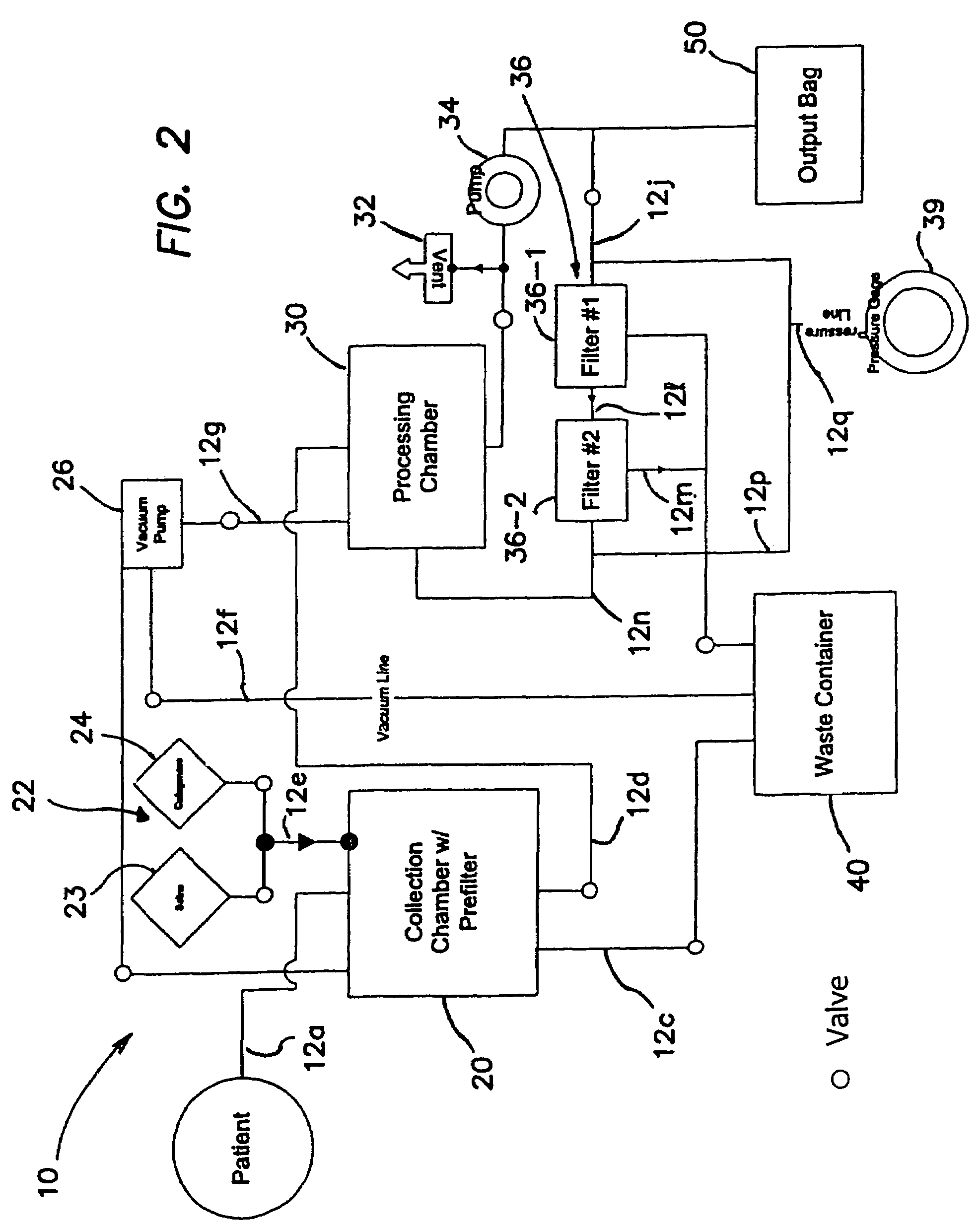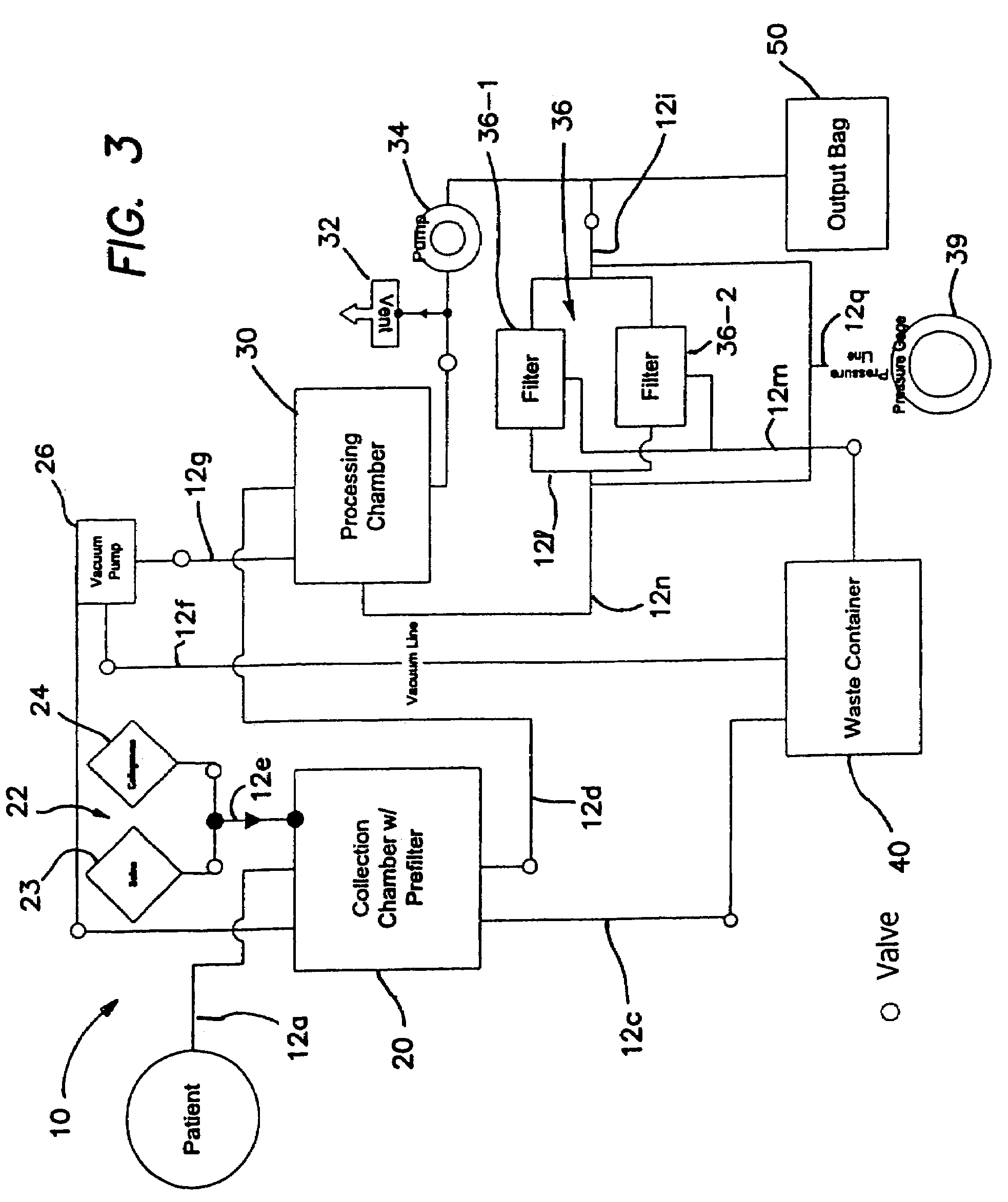Systems and methods for separating and concentrating adipose derived stem cells from tissue
a technology of adipose derived stem cells and cells, applied in the field of system and method for separating and concentrating cells, can solve the problems of reducing the yield of esc derived tissues, affecting the survival rate of esc cells, so as to reduce the need for post-extraction manipulation, improve yield, consistency and/or purity
- Summary
- Abstract
- Description
- Claims
- Application Information
AI Technical Summary
Benefits of technology
Problems solved by technology
Method used
Image
Examples
Embodiment Construction
[0036]The present invention relates to rapid and reliable systems and methods for separating and concentrating regenerative cells, e.g., stem cells and / or progenitor cells, from a wide variety of tissues, including but not limited to, adipose, bone marrow, blood, skin, muscle, liver, connective tissue, fascia, brain and other nervous system tissues, blood vessels, and other soft or liquid tissues or tissue components or tissue mixtures (e.g., a mixture of tissues including skin, blood vessels, adipose, and connective tissue). In a preferred embodiment, the system separates and concentrates regenerative cells from adipose tissue. In another preferred embodiment, the system is automated such that the entire method from separation to concentration of the regenerative cells may be performed in a continuous sequence with minimal user intervention. In a particularly preferred embodiment, the regenerative cells obtained using the systems and methods of the present invention are suitable fo...
PUM
| Property | Measurement | Unit |
|---|---|---|
| volume capacity | aaaaa | aaaaa |
| diameter | aaaaa | aaaaa |
| diameter | aaaaa | aaaaa |
Abstract
Description
Claims
Application Information
 Login to View More
Login to View More - R&D
- Intellectual Property
- Life Sciences
- Materials
- Tech Scout
- Unparalleled Data Quality
- Higher Quality Content
- 60% Fewer Hallucinations
Browse by: Latest US Patents, China's latest patents, Technical Efficacy Thesaurus, Application Domain, Technology Topic, Popular Technical Reports.
© 2025 PatSnap. All rights reserved.Legal|Privacy policy|Modern Slavery Act Transparency Statement|Sitemap|About US| Contact US: help@patsnap.com



